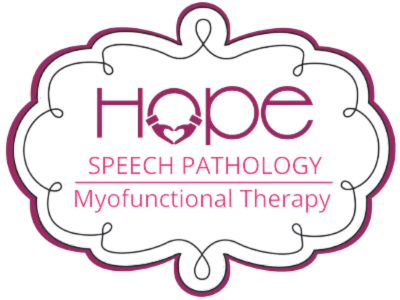
Swallowing problems affect about 1 in 25 adults annually. This can impact a persons life not only physically, but socially and emotionally as well. We specialize in diagnosing and treating oropharyngeal (mouth & throat) dysphagia (swallowing disorder). Hope Speech Pathology will strive to improve your swallowing so you can eat with enjoyment.
Aphasia and cognition-linguistic impairment refer to conditions that affect an individual’s ability to communicate, often as a result of brain injury, stroke, or neurological disorders.
Aphasia primarily impacts:
Cognition-linguistic impairment can affect:

Adult motor speech disorders refer to conditions that affect the physical ability to produce speech, often caused by neurological conditions such as stroke, traumatic brain injury, Parkinson’s disease, or other neurological disorders. These disorders can impact the strength, coordination, and control of the muscles used for speech, leading to difficulties with articulation, voice quality, and speech clarity.
Common motor speech disorders include:
which involves weakness or lack of coordination in the muscles used for speech
a motor planning disorder that makes it difficult for individuals to coordinate the movements needed for clear speech.
Treatment for adult motor speech disorders typically involves speech-language therapy, focusing on exercises to improve muscle strength, coordination, and speech clarity. With early intervention and targeted therapy, individuals can often see significant improvements in communication, enhancing their ability to express themselves and engage more fully in social and professional interactions.
Adult voice disorders refer to conditions that affect the quality, pitch, volume, or clarity of an individual’s voice, often resulting from overuse, injury, illness, or underlying medical conditions such as acid reflux, thyroid problems, or neurological disorders.
These disorders can manifest as hoarseness, breathiness, a strained or weak voice, or difficulty projecting sound.
Common Diagnosis for Voice Therapy That We Treat:
Impact can range from mild discomfort to severe difficulty in speaking, making it challenging for individuals to communicate effectively in both personal and professional settings.
Treatment for adult voice disorders typically involves voice therapy with a speech-language pathologist, behavioral techniques to reduce vocal strain, and, in some cases, medical or surgical interventions. Early diagnosis and intervention are key to restoring vocal health and improving communication, helping individuals regain confidence in their voice and quality of life.
These disorders can manifest as hoarseness, breathiness, a strained or weak voice, or difficulty projecting sound.

Monday 9am-7pm
Tuesday 10am-7pm
Wednesday 8-5pm
Thursdays 8-4pm
Friday -8-4pm
Copyright © 2025 All Rights Reserved.